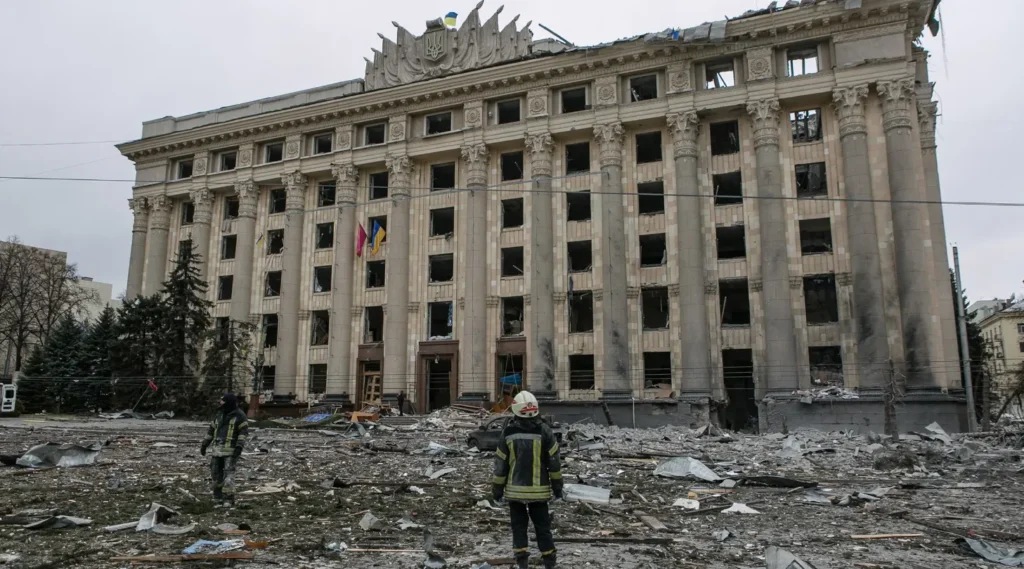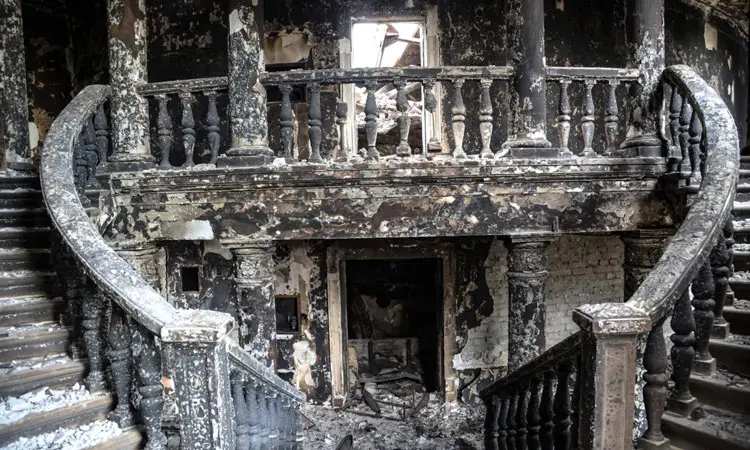Cultural property crime – Ukraine looted by Russia and Wagner PMC

Russian forces have damaged and destroyed dozens of cultural institutions during attacks on Ukrainian territory since the full-scale invasion began on February 24th, 2022.
International humanitarian law prohibits pillage – the unlawful appropriation of any property during an armed conflict against the will of the rightful owner – and it is a war crime.
International humanitarian law also prohibits, as a ‘grave breach’ of the Geneva Conventions, and a war crime under the statute of the International Criminal Court (ICC), the “extensive destruction and appropriation of property, not justified by military necessity and carried out unlawfully and wantonly.” Similarly, “destroying or seizing the enemy’s property unless such destruction or seizure is imperatively demanded by the necessities of war” is a war crime and prosecutable before the ICC.
All pillage, appropriation, or seizure of property from museums and cultural institutions in Ukraine by Russia is a war crime. All individuals responsible, both civilian and military, should be held accountable.

The 1954 Hague Convention for the Protection of Cultural Property in the Event of Armed Conflict, to which Russia and Ukraine are both parties since 1957, requires states to take steps to protect cultural property in war. This includes an undertaking “to prohibit, prevent and, if necessary, put a stop to any form of theft, pillage or misappropriation of, and any acts of vandalism directed against, cultural property” and to “refrain from requisitioning movable cultural property situated in the territory of another High Contracting Party” (article 4(3)). States are also required to take all necessary steps to prosecute and impose sanctions on those who commit or order to commit acts of pillage, or other crimes that violate the convention (article 28).
The Hague Convention also addresses the obligations of occupying forces in times of armed conflict (article 5). The obligations on the occupying power are to “as far as possible support the competent national authorities of the occupied country in safeguarding and preserving its cultural property.”
If it becomes necessary “to take measures to preserve cultural property situated in occupied territory and damaged by military operations,” and the competent national authorities are unable to do so, the occupying power “shall, as far as possible, and in close co-operation with such authorities, take the most necessary measures of preservation.”
In so far as any of the Russian forces or civilians operating with them were alleging to take measures to protect cultural property, they did not, and made no efforts to do so in compliance with international law, and their acts were ones of pillage and unlawful appropriation, requisitioning or seizure, not preservation.
Crimes against or affecting cultural heritage can, alone or cumulatively with other acts, also be prosecuted as the crime of persecution, a crime against humanity.